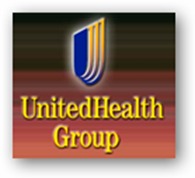Here’s the latest results and more so than most insurers, United is a big conglomerate today of many types of businesses and sometimes it’s hard to see all the type of businesses they own due to subsidiary action, which is a key to watch today in order to get some type of idea where projections  may go. Earlier this year the company decided to pay out higher and more frequent dividends, which come first before the actual care side of the business by law.
may go. Earlier this year the company decided to pay out higher and more frequent dividends, which come first before the actual care side of the business by law.
UnitedHealth To Pay Out Higher and More Frequent Dividends to Share Holders, No Caps on Earnings for Executives or What Is Spent on Lobbying Says the Board
The board actually tried to limit executive earnings and you can read at the link below as it appears to pretty much be we don’t care just send money if you will. This kind of gives you an peek into the ethics or maybe lack of with the current board.
UnitedHealth Shareholders Say We Don’t Care What Executives Earn and What Is Spent on Lobbying – Go For It
Costs have been cut in recently in Orange County, many employers are trying to renegotiate their employer benefits as the old HMO type Pacificare contracts are revised. United bought Pacificare a few years ago and this is still part of the process of combining operations. You can see though that many are struggling with finding solutions and some hospitals no longer honor their contracts due to what they have considered unaffordable reimbursement standards with the employer insurance.
As always the financial structure is a focus and they have their own FDIC bank with deposits over a billion, mostly from employer backed plans. This gets connected right to the “wellness” options on their site.
UnitedHealth Group Owns a Bank With Deposits Surpassing a Billion – OptumHealth Bank FDIC Insured
Medical Loss Ratios are also in the air for discussion and the company states they are at 82%, but what areas constitute where premiums are paid? We saw Blue Cross recently when through and changed many of their accounting areas here, so if wellness is attached to the bank, does this come under Medical Loss Ratios? We don’t know as there’s no real transparency here as payer algorithms are not certified like those are for EHR systems. 
Health Insurance Medical Loss Ratios – How Will The Definitions Between Healthcare, Other Administrative Costs and Profits Be Spelled Out – May Need Some Algorithms to Figure It Out
What is also interesting too was the statement from Consumer Watchdog alerting HHS not to trust the health insurance industry too, as with highly sophisticated business intelligence systems and algorithmic formulas can we actually get correct or are we seeing “desired” numbers? All the insurers missed the deadlines with HHS on providing their medical loss ratio information.
Consumer Watchdog Warns Sebelius on Health Insurers – Good Reason for This as Insurer Subsidiaries Are in The Game to Play Just As Private Equity Groups Diversify and Collaborate Holdings
The lawsuit with paying claims for the underpayments for the last 15 years doesn’t seem to have much impact here on profits, and with the data base used, the company also had income from other insurers who used the data base from their subsidiary Ingenix with transaction fees so again through subsidiary action they also derive income from other health insurers. The company has made several purchases this year to include additional wellness companies, example below with one working with biometric monitoring, so keep your eyes open for this to evolve.
UnitedHealth Buys Another Wellness Company – Biometric Monitoring For Data With Employer Contracts
Also an interesting subsidiary action here with buying a Chinese company that has a line of communication established with the FDA and the focus here is to promote more Chinese drugs and devices into the US and other global locations. This is one example of how insurers and others are investing their money overseas today.
UnitedHealth subsidiary (Ingenix Subsidiary I3) Acquires ChinaGate – Working to Sell Chinese Products Globally
Again, as I have mentioned before, keep an eye open for subsidiary actions as with technology growing at the rapid pace we see today data bases  and algorithms are being compared, analyzed, etc. in areas that we may not have thought of before. All subsidiaries are grouped today to work together with data, insurers, private equity, you name it. This is somewhat done on the “quiet” side and perhaps not all of this action necessarily makes it to the news. Revenues are healthy enough to where there’s money to pay Walgreen pharmacists pay for performance on working with some of the company wellness programs, and again you can see perhaps the Ingenix data capabilities at work here (subsidiary) to run the numbers.
and algorithms are being compared, analyzed, etc. in areas that we may not have thought of before. All subsidiaries are grouped today to work together with data, insurers, private equity, you name it. This is somewhat done on the “quiet” side and perhaps not all of this action necessarily makes it to the news. Revenues are healthy enough to where there’s money to pay Walgreen pharmacists pay for performance on working with some of the company wellness programs, and again you can see perhaps the Ingenix data capabilities at work here (subsidiary) to run the numbers.
UnitedHealthCare To Use Data Mining Algorithms On Claim Data To Look For Those At “Risk” of Developing Diabetes – Walgreens and the YMCA Benefit With Pay for Performance Dollars to Promote and Supply The Tools
The company is also working to expand pretty aggressively into the UK with this recent announcement with securing contracts with GP management where they outbid others trying to do the same.
United Health Group Outbid Humana and Bupa in the UK to Run Management Services for GPs
In order to keep some of cost down the company has instituted some pretty strong procedures such as the one below, so if the hospital fails to notify the carrier, they get an immediate 50% discount on what they will pay and this sends hospitals jumping through the hoops to figure out how to adequately follow procedures on weekends.
United Healthcare to Hospitals – Notify Within 24 Hours of Patient Admittance or Reimbursement Will Be Cut in Half
The company also supplies marketing data to companies running clinical trials, again subsidiary action here with data mining information.
i3 An Ingenix Company (United Health Care) Partners With Acurian For Business Intelligence With Clinical Trials Marketing for Investigators
The same division, Ingenix makes money selling your medication records for the purpose of underwriting health insurance policies, called a transaction fee, so there’s a lot of data moving here and you are for sale with your medication records. All these transaction fees whether up front or somewhat hidden add to the high cost of what we pay today for our care.

Here’s a private equity firm purchase that will be working with an area of UntiedHeatlhGroup to sell, market and provide insurance.
Two Private Equity Firms to Buy Medical Care Provider Multiplan – ValuePoint Plan Connects to UnitedHeatlhGroup
The company also has hundred of millions invested with Cisco for their teleheatlh technology. Are you insured by a health insurance or technology company one might ask? Coming back around to Medical cost ratios, I just ponder the question, does the technology investment here fall under the premium area of accounting? It is just a thought as there could be a lot of gray areas today in the definitions as technology throws a new left curve every day that needs to have constant attention with rules, regulations and laws.
Update Cisco Lays Off Hundreds - UnitedHealth To Spend Tens of Million of Dollars with Cisco to Build Nationwide Telehealth Network –
If you have read through all of this, take one message with you here and that is the fact that profits made are going beyond just providing care and there’s a lot more to this picture with how they are derived and when looking at this arena of complexity of extreme mathematical formulas and algorithms, how does the government monitor and regulate big entities of such?
Hospitalists, Peer Committees and Utilization Struggle to Comprehend United HealthCare Algorithms
In the real world, this is what you end up with with trying to comply with policy, parameters, etc. a lot of hospital administration time, peer meetings, etc. where nobody is being very successful in figuring out – here’s a quote from the article linked above.
“I recently admitted a patient with an illness requiring an acute inpatient hospitalization. According to my utilization review folks, my patient met both the intensity of services requirement AND the diagnosis requirements necessary to meet inpatient criteria. You see, in order to qualify for hospital admission the patient must meet very specific criteria published in a thousand page book that defines what diagnosis must be present and what hospital services must be provided to qualify for an inpatient hospital stay.”
When I got off the phone, I had just one question floating in my mind: Is United Health Care's Managed Medicaid contract and physician review process a scam? I found myself with many unanswered questions.”
I hope someone figures that out soon as otherwise we have a world of run away corporations that basically nobody is able to touch. They pay fines when a few items are brought to task, but when that has been completed it’s back to business as usual. 
I only brushed the surface here as there’s so much more to it. The algorithms created for management are becoming increasingly difficult for the “real world” of hospitals and doctors to comply with at times so there has to be a balance along the line here with enough money for both sides instead of hospitals running out of funds and closing down while insurers continue to line their pockets. Until such time I guess we will keep seeing huge profits as such making the news. BD
UnitedHealth Group Inc., the biggest U.S. health insurer by sales, raised its full-year profit forecast after increased enrollments and lower-than-projected medical costs lifted second-quarter earnings 30 percent.
The insurer forecast 2010 profit of $3.40 to $3.60 a share compared with a previous projection of $3.15 to $3.35, citing growth in sales or membership for all business units. Net income rose to $1.12 billion, or 99 cents a share, for the quarter, from $859 million, or 73 cents, a year earlier, the company said today. The earnings and forecast topped estimates.
“If the consumers are tapped out and not getting as many elected procedures and pushing off care, that’s ultimately better for UnitedHealth,” Gurda said in a telephone interview. “As long as the job market and consumer confidence remain soft, hospital volumes and physician visits are likely to remain soft as well.”
The company, based in Minnetonka, Minnesota, raised its 2010 revenue forecast by $1 billion, to $93 billion. Sixteen analysts surveyed by Bloomberg had estimated $92.2 billion, on average, and $3.32 a share in annual earnings.
UnitedHealth Profit Jumps as Medicare, Medicaid Grow - Bloomberg




0 comments :
Post a Comment